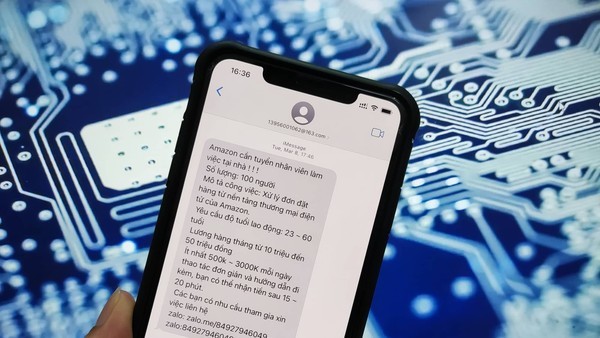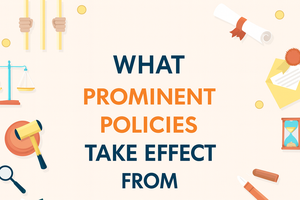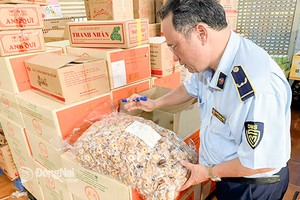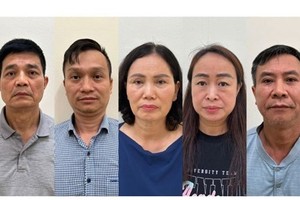 |
While there are many types of scams, the ultimate goal is the same - to steal. Scammers want to steal victims’ money, personal information and personally identifiable information or to get access to credit cards or bank accounts.
According to the Ministry of Information and Communications, in 2022 alone, there are three main fraud groups such as brand counterfeiting, account appropriation, and other combination with 16 forms of fraud regularly taking place on Vietnam's networking sites.
The fake brand group takes advantage of the brands of organizations including banks, state agencies, financial and securities companies to send fraudulent SMS messages to victims. The group fakes official websites/blogs to create prestige to trick victims, take over social media accounts like Zalo, Facebook, and TikTok and send fraudulent messages to friends and relatives of victims to take over social media accounts.
Scammers have been using a combination of frauds comprising using domestic, and foreign phone numbers or strange numbers or they pretended to be authorities, police, and telecommunications operators to call victims to report a violation of the law and request a transfer. Moreover, they have been impersonating high-ranking employees of e-commerce sites to trick victims into becoming collaborators to pay bonuses.
Roughly 12,935 victims were deceived by online scammers last year, according to the authorities. Furthermore, two main types of fraud were recorded including fraud to steal personal information at 24.4 percent and financial fraud accounting for 75.6 percent.
The National Cybersecurity Monitoring Center has also discovered a wave of attacks on some banks' accounts in Vietnam to steal identity and account information. Fraudsters use text messages or phone calls to users' subscribers; thereby, they have been informing about the program to upgrade the card (credit) limit, sending a redirect link to the website impersonating the bank, then hacking the victim's bank account.
The country has more than 70 million Internet users. In this time when Vietnam has been accelerating digital transformation, the National Cyber Security Monitoring Center warned that cybercriminals have taken advantage of the boom of information technology applications to carry out many online scams. The ultimate goal of online fraud is to appropriate property, all frauds are based on gullibility, lack of access to information, lack of employment, or low income.
In addition to the efforts of the authorities in preventing cybercrime, people need to recognize fraudulent acts online, especially on the days near the Tet holiday ( the Lunar New Year) and during Tet.
























